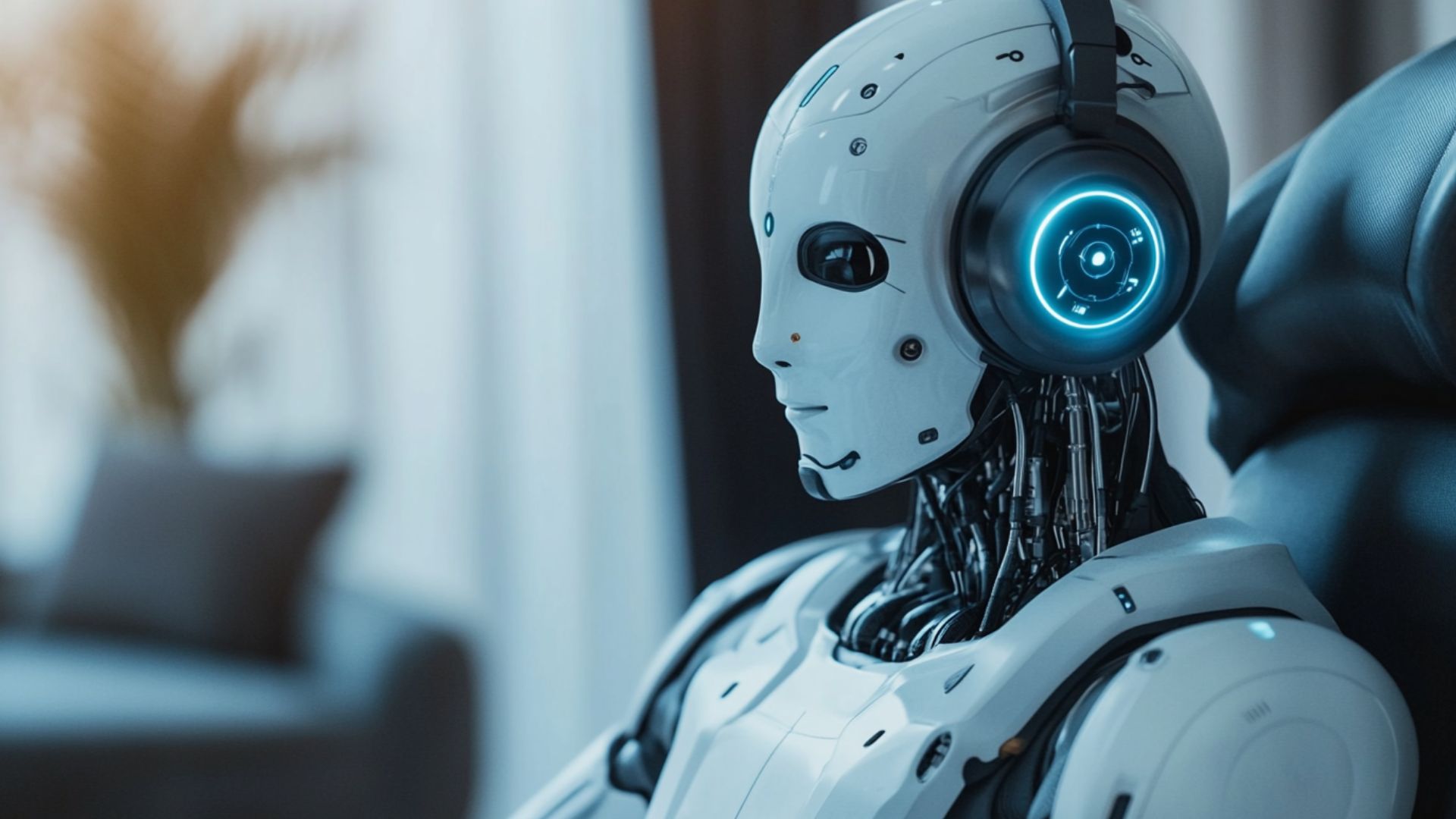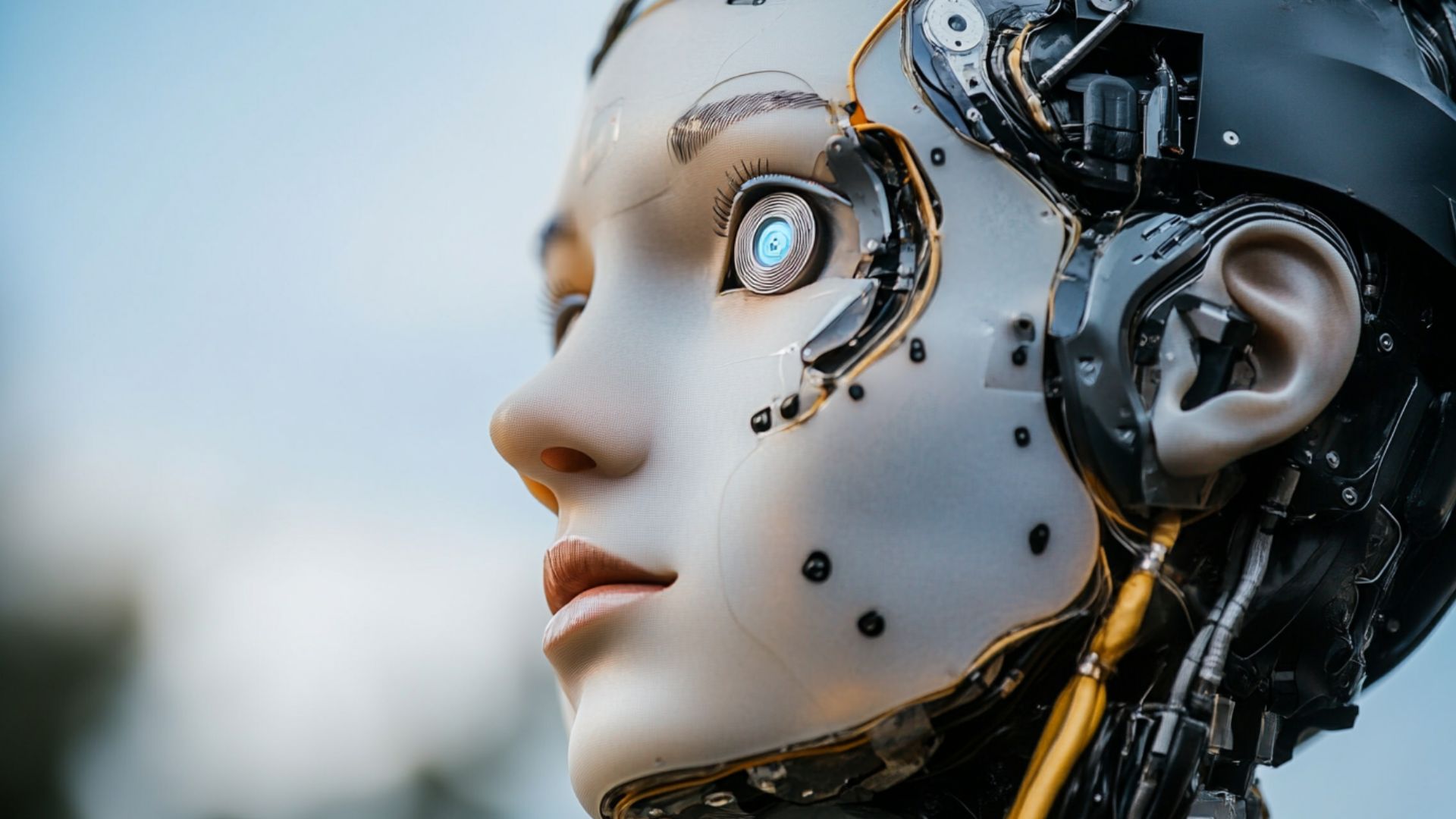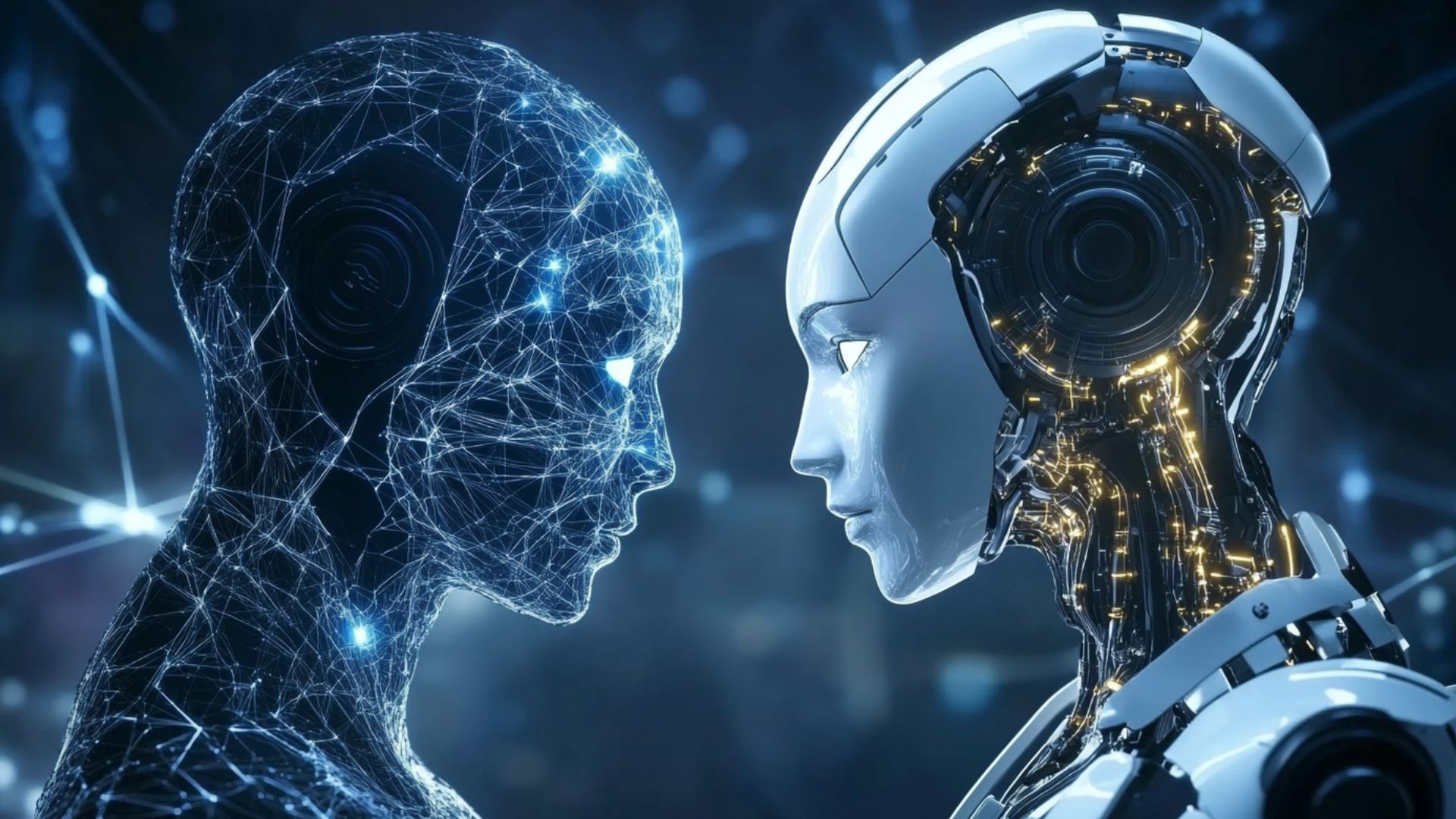How AI is Transforming the World

Today, we will talk about modern technologies. Artificial intelligence (AI) turns over all areas. This branch of computer science deals with solving cognitive tasks. They are usually assigned to humans. Let's delve into the details of how AI is changing our world. AI enhances convenience and personalization in everyday activities. Businesses are increasingly adopting AI technologies. They drive innovation in all areas. It leads to improved efficiency and productivity.
The broad applications of AI are evident in advanced scientific research. Machine learning (ML) algorithms analyze vast datasets. They uncover new insights in genomics and climate science. AI is revolutionizing client service through chatbots. It enhances user experiences and provides real-time support. AI continues to evolve. It can potentially transform business practices, societal norms, and ethical considerations. AI has become increasingly significant. Understanding how AI is transforming the world is crucial. It helps to navigate this rapidly changing area and harness its benefits for future generations.
AI in Healthcare: Revolutionizing Patient Care
AI is significantly improving diagnostics and treatment planning in several ways:
- Enhanced Diagnostics: AI algorithms analyze medical images. They are X-rays and MRIs. AI algorithms use them to detect anomalies more accurately and quickly.
- Predictive Analytics: AI systems assess patient data. It forecasts disease progression and treatment outcomes, enabling proactive interventions.
In the realm of personalized medicine, AI technologies play a crucial role. Here is how artificial intelligence is changing the world:
- Tailoring Treatments: AI analyzes genetic information, lifestyle factors, and medical history. It helps to customize therapies for individual patients.
- Optimizing Drug Discovery: Machine learning algorithms identify potential drug candidates faster. They reduce time and costs when bringing new medications to market.
AI-powered robots and systems are also transforming surgical procedures. They do it by:
- Precision Surgery: Robotic-assisted surgeries allow for more precise movements. They reduce recovery times and minimize complications.
- Real-time Monitoring: AI systems provide surgeons with critical data during operations. They enhance safety and decision-making.
The benefits of artificial intelligence to society in healthcare are profound. They illustrate how it improves patient outcomes and transforms medical practices.
AI-Powered Diagnostics and Imaging
AI algorithms are transforming medical imaging. It enhances the speed and accuracy of diagnoses. These algorithms accurately analyze images, allowing healthcare professionals to identify conditions more efficiently. Here are some key enhancements:
- Image Analysis: AI algorithms process complex imaging data (e.g., CT scans, MRIs). It highlights abnormalities that the human eye might miss.
- Speeding Up Diagnostics: Automated image evaluation significantly reduces the time needed for interpretation. It allows for quicker treatment decisions.
Examples of the most advanced AI applications in detecting diseases. They are cancer through image analysis. Let's examine these examples:
- Breast Cancer Detection: AI systems analyze mammograms to identify potential tumors. They achieve comparable or superior accuracy to radiologists.
- Lung Cancer Screening: AI algorithms evaluate chest CT scans to detect early signs. It improves early intervention rates.
- Skin Lesion Analysis: AI-powered tools assess dermatoscopic images for melanoma detection. They provide dermatologists with vital diagnostic support.
So, how does AI help society? It improves diagnostic capabilities. It ultimately leads to better patient outcomes and more effective healthcare systems.
AI in Drug Discovery and Development
AI is revolutionizing drug discovery. It significantly accelerates the process of identifying and developing new medications. Here’s how AI contributes:
- Predicting Molecular Behavior: AI algorithms analyze vast datasets. It predicts how different molecules will interact. AI helps researchers identify promising drug candidates faster.
- Virtual Screening: AI enables rapid screening of millions of compounds. It helps to find those most likely effective against specific diseases.
The role of AI in reducing the time and cost of bringing new drugs to market is substantial. Let's explore why:
- Streamlining Research: AI automates routine tasks and optimizing workflows. It minimizes manual effort and accelerates research phases.
- Enhancing Clinical Trials: AI helps identify suitable patient populations. It monitors trial data in real time. AI improves efficiency and success rates.
These advancements highlight why AI is good for society. They lead to faster access to life-saving treatments and a more cost-effective healthcare system.
AI in Business: Driving Efficiency and Innovation

AI is transforming business operations by optimizing processes through automation and predictive analytics. Here’s how AI is making an impact:
- Operational Automation: AI streamlines repetitive tasks. It reduces the need for manual intervention and increases overall efficiency.
- Predictive Analytics: AI analyzes historical data to forecast trends and outcomes. It enables businesses to make informed decisions proactively.
In client service, the future of AI and machine learning enhance experiences through:
- Chatbots: These AI-driven tools instantly respond to client inquiries. They improve service speed and availability.
- Virtual Assistants: AI agents help manage customer interactions. They range from scheduling appointments to providing product recommendations.
AI's role in data analysis and decision-making is pivotal. Here is why:
- Actionable Insights: AI processes large volumes of data to identify patterns. They guide strategic decisions.
- Enhanced Marketing Strategies: Businesses leverage AI to tailor marketing campaigns. They are generally based on consumer behavior analysis.
These developments exemplify the impact of AI on society. They drive innovation and improve the efficiency of businesses across various sectors.
AI for Supply Chain Management
AI is revolutionizing supply chain management. It streamlines processes from inventory management to logistics. How does AI contribute to enhancing supply chain efficiency? Let’s explore:
| Area | AI applications | Example Companies |
| Inventory Management | AI algorithms forecast inventory needs, reducing overstock and stockouts. | Amazon uses AI for real-time inventory tracking. |
| Demand Prediction | AI analyzes historical sales data and market trends. They predict future demand accurately. | Walmart utilizes AI to optimize inventory levels. They are generally based on demand forecasts. |
| Logistics Optimization | AI optimizes delivery routes and schedules. It improves shipping efficiency and reduces costs. | UPS employs AI to optimize routes, saving fuel and time. |
| Supplier Management | AI evaluates supplier performance and risks. It ensures a resilient supply chain. | Coca-Cola uses AI to assess supplier reliability and performance metrics. |
AI in Marketing and Sales
AI is transforming marketing and sales. It enables personalization and improves efficiency in various ways. Let's discuss them:
- Personalized Marketing Campaigns: AI analyzes client interactions, preferences, and purchasing behavior data. It helps to tailor marketing messages. AI identifies distinct customer segments. It allows businesses to create targeted campaigns that resonate with specific groups.
- Sales Forecasting: The latest AI advancements leverage historical sales data. It helps to predict future sales trends. AI allows businesses to allocate resources effectively. Machine learning models refine forecasts based on real-time data. They increase the reliability of sales predictions.
- Lead Generation: AI tools analyze client data. It helps to identify leads with the highest conversion potential. AI automates follow-ups and engagement strategies, ensuring timely communication with prospects.
These advancements raise questions about whether AI is taking over the world. They enhance marketing effectiveness and drive business growth.
AI in Education: Shaping the Future of Learning

AI is revolutionizing education by integrating into tools and platforms. They create personalized learning experiences that cater to individual student needs. Here are key aspects:
- Personalized Learning Experiences: AI analyzes student performance and preferences. It delivers customized educational materials. These systems adjust the difficulty and style of content. It is generally based on real-time assessments of student progress.
- Grading and Feedback: The future of AI and machine learning quickly evaluates assignments. They provide consistent and objective grading. AI systems offer immediate feedback on assignments. They help students understand their mistakes and improve continuously.
- Accessibility in Education: AI tools can adapt to learning styles and paces. They make education more inclusive. AI-driven platforms facilitate students' access to quality education. This is in remote or underserved areas.
These developments underscore why AI is beneficial to society. We highlight how it makes education more personalized and accessible for all learners.
AI in E-Learning Platforms
AI significantly enhances e-learning by personalizing content and adapting to individual learning paces. It ensures each student receives a tailored educational experience. Here’s how AI contributes to e-learning:
- Personalized Content: AI analyzes students’ strengths and weaknesses. It helps to create customized learning paths that suit their needs. AI tools adjust the difficulty of quizzes and tests. They are generally based on student performance, ensuring appropriate challenges.
- Real-Time Adaptation: AI monitors progress and can accelerate or slow down content delivery. It matches individual learning speeds. Learners receive immediate feedback on their performance. It allows for timely adjustments in understanding and strategy.
There are examples of AI-powered e-learning platforms:
- Coursera: Utilizes AI to recommend courses based on user interests and past performance.
- Knewton: Provides adaptive learning solutions that personalize educational experiences for diverse learners.
- Duolingo: Leverages AI to tailor language lessons. This is according to user proficiency and engagement levels.
These innovations highlight the good things about artificial intelligence. They make education more personalized and accessible for everyone.
AI for Student Support and Engagement
AI plays a significant role in enhancing student support and engagement within educational environments. Here’s how it contributes:
- Monitoring Student Performance: AI systems track student engagement and performance metrics. It allows educators to identify at-risk students quickly. AI algorithms alert educators when students show signs of struggle, enabling timely interventions.
- Providing Timely Support: AI-driven tutoring systems offer customized assistance. It is generally based on individual learning gaps and styles. AI chatbots offer immediate support to students for academic queries. They help them when teachers are unavailable.
- Engaging Students: AI facilitates immersive learning experiences through virtual reality and gamified content. It makes learning more enjoyable. AI creates dynamic learning environments that adjust in real time. It maintains student interest and engagement.
These applications illustrate the social benefits of AI. They emphasize its capacity to enhance educational outcomes. This happens through student support and engagement advancements.
AI in Everyday Life: Enhancing Daily Experiences
AI is increasingly integrated into everyday consumer products and services. It enhances daily experiences in many ways:
- Applications in Consumer Products: AI powers facial recognition. It offers predictive text and personalized app recommendations. AI-enabled devices optimize energy use and enhance convenience. They are smart refrigerators and washing machines.
- Home Automation: AI technology in thermostats allows for remote control and automation. It is generally based on user preferences. AI assistants are Alexa and Google Assistant. They manage tasks, answer questions, and control smart home systems. AI makes daily life easier. This integration of AI in home automation highlights why AI is the future. It enhances convenience and improves the overall quality of life.
- Enhancing User Experiences: AI algorithms in mapping apps provide real-time traffic updates. They also offer optimal routes. AI algorithms improve travel efficiency. Streaming services use AI to recommend shows and movies. They are generally based on user preferences. AI enhances viewing experiences. It personalizes online shopping experiences. It suggests products based on past purchases and browsing behavior.
These developments underscore the role of AI and innovation in transforming daily life. They make everyday experiences more convenient and enjoyable.
The Future of AI: Ethical Considerations and Challenges
AI adoption has become more widespread, and several ethical implications have arisen. They are particularly concerned with privacy and security. Here is how:
- Privacy Concerns: The collection and analysis of personal data raise significant privacy issues. Users may be unaware of how their information is being used.
- Security Risks: AI systems can be vulnerable to cyberattacks. They potentially compromise sensitive data and threaten individual safety.
Ensuring fairness in the most advanced AI algorithms presents notable challenges:
- Bias in Algorithms: AI can inadvertently perpetuate them in training data. Bias leads to unfair outcomes in applications like hiring and law enforcement.
- Lack of Transparency: Many AI models operate as "black boxes." They make it difficult to understand how decisions are generally made.
The importance of regulations and guidelines must be more prominent. It helps to address these issues. Here is why:
- Establishing Standards: Clear regulations help ensure AI technologies are ethically developed and used.
- Promoting Accountability: Guidelines can foster accountability among organizations deploying AI solutions.
These considerations shape the future of AI news. They underscore the need to stay informed about the latest advancements. Follow us to keep updated on the latest news.


